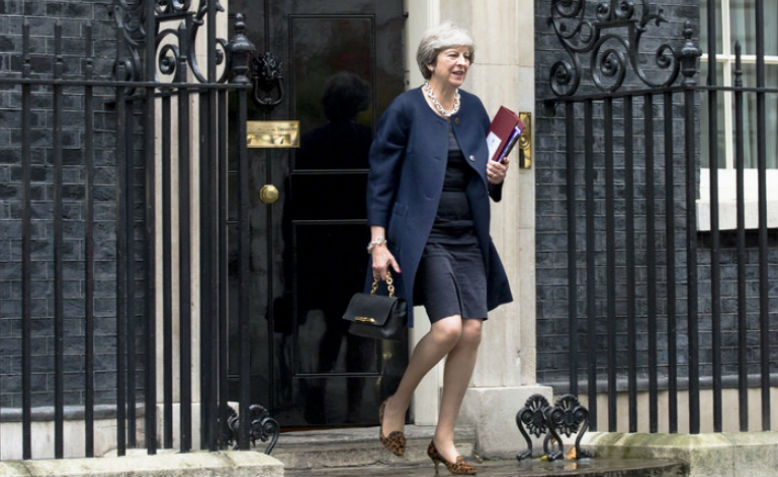 Theresa May leaving Downing Street. Photo: Flickr via Number 10
Theresa May leaving Downing Street. Photo: Flickr via Number 10
This week’s parliamentary back-and-forth shows the Tories cannot deliver Brexit and a general election is the only sensible outcome, argues Martin Hall
The government’s motion to ask for a delay in Brexit via an extension of Article 50 until at least June 30th, with a further and longer delay being likely if the government’s deal is not approved by March 20th, has been passed with a majority of 210: 412 for, with 202 against.
Theresa May is hoping that the threat of a longer delay will concentrate minds on the Tory Brexiter backbenches, though the European Research Group (ERG) has already stated that it will not vote for May’s deal when it incredibly returns for a third reading next week.
Earlier, the Independent Group’s (TIG) Sarah Wollaston had tabled an amendment to extend Article 50 in order to allow a second referendum to take place. This was soundly defeated, with Labour MPs being ordered to abstain, though 25 of the 85 who voted for this were People’s Vote supporting MPs still in the party, in so doing aligning themselves with the ones who have already jumped ship to TIG.
The obsessive coverage of this topic in much of the liberal media has hit reality square in the face. There is no majority for another referendum in parliament, and no path to there being one.
This comes after no deal was ruled out last night, after the absurd sight of Tories being told to vote against their government’s own motion. Despite this, four cabinet ministers and seven junior ministers abstained, having been given permission to do so, a situation that can have little if any precedent. This was followed this evening by eight ministers voting against the government, including the Brexit Secretary. The government Chief Whip abstained.
All sense of party discipline has broken down, and very clearly Theresa May cannot even command the support of her cabinet never mind her party. To state the obvious, her deal also does not command the support of the country, pleasing as it does almost no one.
What now, then? May will bring back her deal next week, again: unchanged; unheralded and unwanted. It seems incredibly unlikely that it will pass, despite the threats mentioned above.
There is only one option now: a general election, in order to break the Brexit impasse, get the Tories out, and allow the Labour Party to put their version of Brexit to the test in Brussels.
We have a government that cannot govern, and cannot pass its prime piece of legislation; indeed, the only thing they really stood on in 2017. They said they would deliver Brexit, and they cannot.
After the inevitable third fail next week, Labour should table another vote of no confidence. There are noises from parts of the Tory party suggesting that they may try and force May out. In order to do that, and to achieve the harder Brexit demanded by some of its parliamentary party and its membership, such a vote may gain support.

